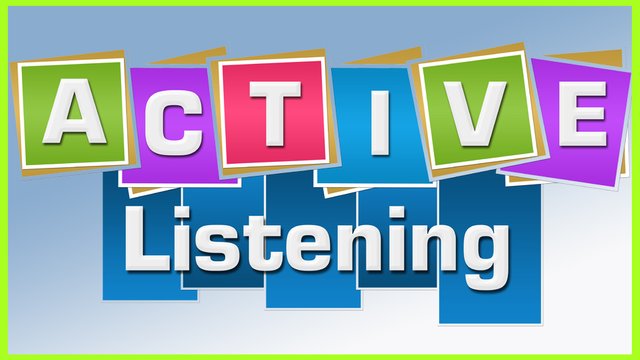How To Listen To Other People Actively

Listening is something that we all need to do more of. It’s easy to talk, but how many times have you really listened to what other people are saying? Plenty of people will tell you it’s something of a lost art these days, and it’s not hard to see why. Somewhere in the always-moving pace of the modern world, we’ve stopped listening and started just taking in what sounds good and throwing away the rest.
The internet makes it easy to skim content you don’t like, and that’s kind of what is happening with our ears. You can tune out of anything fairly well, but it would be better to stop. Here, take this typical situation where you didn’t really listen.
You start a conversation with someone, and you put your idea, your question, your statement – whatever it is – out there. Now, in a good conversation, you then wait for the other person to come up with a response (which, depending on what you’ve said, may not be instantaneous). However, what is increasingly happening is that we quickly re-phrase what we said, and maybe even answer it because, well, it was only a rhetorical question.
What does this mean? Well, you’re definitely not listening if you do this – but what you are doing is just not – to put it colloquially – STFU when you should be. That’s kind of insulting to the other party, and also deprives you of their insight.
So, let’s say you’re aware of this and instead you pause after your initial statement. Great start. Now they’re talking. Are you really listening, or are you busy working on your own response? Half listening, not really trying to comprehend where their idea is coming from, you’re actually engaging in an act of ego-boosting. How? Well, in this fast-moving society, we all want to be seen as fast, quick-witted people who are never lost for words. That’s fine, but you’re also missing out on potentially super valuable interesting and even useful information. Does that sound good to you?
One area where the art of listening can be truly valuable is at networking events, especially those where leaders in your niche or industry are present. These people have a lot of experience and wisdom to impart, and not listening to them is your mistake – not theirs.
To bring it down a level, think of your clients or customers. Are you listening to their needs, or are you already working out how to adopt what they want to what you want? Are you picking up all their nuance and informational cues? If you meet with any in person, observing their body language is just as important as what they say, because it clues you into what they are feeling.
So, what should you do? We should all be trying to listen better, because that helps to make us better. Other people are full of knowledge and can help us – and they also appreciate people who are actually listening (trust me, this is starting to become rarer than a hen’s tooth, so it’s a skill you should be cultivating…).
By listening carefully to what people say, you’re giving them space and respect to share their opinion, worldview, and desires. In many cases, that builds up their trust in you. And don’t forget, trust is one of the most important things that you have in your business. So, will you start listening actively today?
